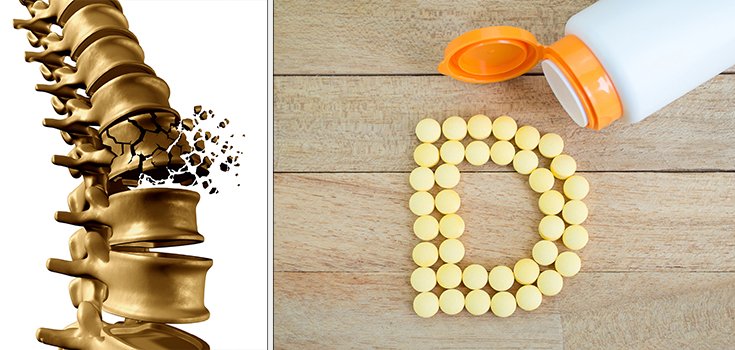Study Says Vitamin D Supplements Don’t Build Bones

Vitamin D is vital for bone health, but it’s best to get the nutrient from your diet to prevent conditions like osteoporosis, research suggests. The study says that vitamin D supplements don’t build bones, and the authors urge doctors to stop recommending them to patients for that purpose.
The vitamin is associated with a decreased risk of several bone conditions, including osteoporosis and high blood pressure. Vitamin D also keeps bones strong by helping them absorb calcium. For this reason, many people use the supplements during the winter months, when most folks spend more time indoors.
However, the authors concluded that Vitamin D in supplement form is fairly useless for the conditions they’re most commonly recommended to prevent.
Lead author Dr. Mark J. Bolland, associate professor at the University of Auckland in New Zealand, said in a statement:
“Our meta-analysis finds that vitamin D does not prevent fractures, falls, or improve bone mineral density, whether at high or low dose.”
Read: 7 Awesome Natural Sources of Vitamin D
Bolland and his team analyzed data from 81 randomized controlled trials involving more than 53,000 people that looked at whether vitamin D supplements decreased fractures and falls, and increased bone density. Most of the patients in the studies were women over the age of 65.
The scientists concluded that not only did vitamin D supplements fail to have any positive effect on fractures, falls, or bone density, but there is also no justification in taking them to “maintain or improve musculoskeletal health.” Moreover, the authors said there is no reason to conduct further trials of vitamin D supplements.
Many people consider vitamin D supplements a cure-all for whatever ails them, and their use is especially common among older adults. [2]
Lead researcher Alison Avenell, clinical chair in health services research at the University of Aberdeen in Scotland, said:
“Vitamin D supplement use is common, particularly in North America. Most adults don’t need to take vitamin D supplements, although they are unlikely to do harm if taken in low doses.”
However, the researchers did find the supplements to be useful in preventing rare conditions like rickets and osteomalacia in high-risk groups. Both ailments can occur as a result of vitamin D deficiency, caused by a prolonged lack of exposure to sunshine. [1]
There is also evidence to suggest that vitamin D supplements may help prevent cancer and heart disease, and may reduce severe asthma attacks. [2]
Read: Study Says 13% of U.S. Deaths Could be Prevented by Upping Vitamin D Levels
Avenell said:
“Preserving bone strength involves keeping active, not smoking, not being too thin, and taking medications for osteoporosis.”
But it’s time for doctors and health officials to stop recommending the supplements to older patients for osteoporosis and brittle bone prevention, Bolland said. [1]
He added:
“Clinical guidelines should be changed to reflect these findings.”
The study is published in The Lancet Diabetes and Endocrinology.
Sources:
[1] CNN
[2] HealthDay
